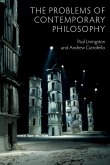This book is a critical introduction to contemporary French philosopher Jacques Rancière. It is the first introduction in any language to cover all of his major work and offers an accessible presentation and searching evaluation of his significant contributions to the fields of politics, pedagogy, history, literature, film theory and aesthetics. This book traces the emergence of Rancière's thought over the last forty-five years and situates it in the diverse intellectual contexts in which it intervenes. Beginning with his egalitarian critique of his former teacher Louis Althusser, the book tracks the subsequent elaboration of Rancière's highly original conception of equality. This approach reveals that a grasp of his early archival and historiographical work is vital for a full understanding both of his later politics and his ongoing investigation of art and aesthetics. Along the way, this book explains and analyses key terms in Rancière's very distinctive philosophical lexicon, including the 'police' order, 'disagreement', 'political subjectivation', 'literarity', the 'part which has no part', the 'regimes of art' and 'the distribution of the sensory'. This book argues that Rancière's work sets a new standard in contestatory critique and concludes by reflecting on the philosophical and policy implications of his singular project.
Dieser Download kann aus rechtlichen Gründen nur mit Rechnungsadresse in D ausgeliefert werden.
"Davis has thought through how best to introduce Rancière's philosophy and he does it convincingly and compellingly. His book will deservedly become the standard introduction and companion to Rancière for first time readers at every level." -- Jay Bernstein, New School for Social Research









